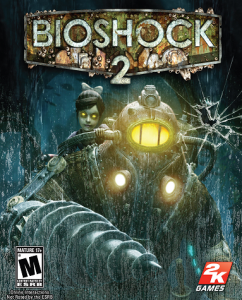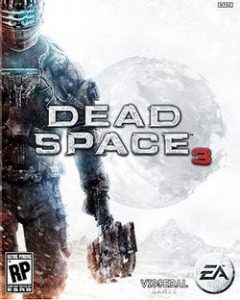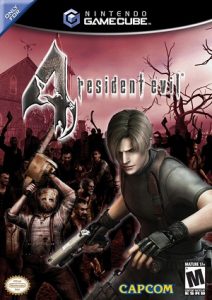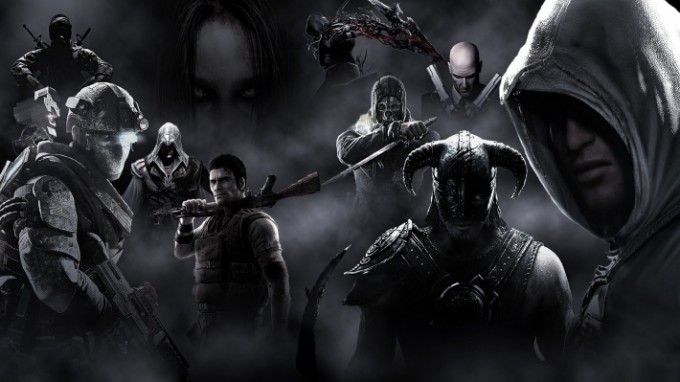An earlier version of this article appeared at Gamnesia.com.
Don’t let the title fool you, sequels to video games are not inherently bad. In fact, some of the best games ever made are sequels. For example, Skyrim is the fifth game in the Elder Scrolls series, and many would argue it’s the best thus far — even better than Morrowind. And Silent Hill 2 is generally agreed upon to be the best game in the Silent Hill franchise and one of the best survival horror games overall. The same applies to Resident Evil 4, Final Fantasy X, Metal Gear Solid 3: Snake Eater, and many more. A well-made sequel, one that is wanted by both developer and consumer, is always appreciated. When playing, one can tell when a studio truly put their all into a game and made it with customer’s enjoyment in mind, or if it is something that was hastily slapdashed together for the sole expressed purpose of selling copies. The latter are the types of sequels that really get my goat.
That’s not to say that making money is bad. Of course selling copies and making money is a goal. Without profits and income, studios couldn’t make more games. Making money is always an important factor. It really boils down to the intentions of the game developer. As stated previously, one can easily tell when a game is made with the entertainment of the player in mind, or if it is made with the singular intention of selling copies to make money and nothing else. While it is very true that the video game industry is a business and needs money to survive and continue to create, is it also not true that video games can be an artistic medium as well and should be treated as such?
 Game players and studios have spent decades fighting for video games’ right to be treated as legitimate forms of art and expression — just as music, movies, and books are. Albeit a different medium, video games are just as much an art form as anything else. We try to defend video games as a legitimate source of art, expression, and entertainment every time an Xbox 360 is found inside the house of a a kid who just went on a killing rampage. Whenever a Congressperson tries to pass a bill banning violent video games, or tries to censor or destroy our art, we jump to its defense and fight for our right to be taken seriously. We argue that games are simply being treated as a scapegoat. We also contend that games are an artistic medium, and need to be treated and respected as such.
Game players and studios have spent decades fighting for video games’ right to be treated as legitimate forms of art and expression — just as music, movies, and books are. Albeit a different medium, video games are just as much an art form as anything else. We try to defend video games as a legitimate source of art, expression, and entertainment every time an Xbox 360 is found inside the house of a a kid who just went on a killing rampage. Whenever a Congressperson tries to pass a bill banning violent video games, or tries to censor or destroy our art, we jump to its defense and fight for our right to be taken seriously. We argue that games are simply being treated as a scapegoat. We also contend that games are an artistic medium, and need to be treated and respected as such.
But then “ActiCapÜbersoftComVision Arts” comes out with 17 versions of “Assassin’s Duty XIV: Super Online Beta Generations 4 – Arcade Edition” in the same year and charges $59.99 for each. That sort of behavior is what completely undermines our “games are art” argument. That’s not art… that’s a dead horse being beaten over and over until every last bloody cent is carved out of its already eviscerated corpse. To paraphrase a fast-talking, Anglo-Australian, cynic named after a dice game, “They’ve taken what we’ve fought for to be considered a legitimate form of art and turned it into a cash cow so over-milked that its udders have turned into little black stalactites and fallen off.”
That opinion may seem a bit extreme, but let me elaborate and put it into the proper context.
Just to reinforce my point: it’s not that sequels are bad. Some of the best games ever created are sequels. When a studio makes a brilliant follow-up to a beloved game, it’s usually appreciated and loved. But it’s clear that in today’s video game market that there are game developers who aren’t treating video games as an artistic medium — or even as an entertainment medium; it’s not their ultimate goal. Oh sure, they have give you some sort of token “entertainment” to get you hooked, but the real “entertainment” is blocked behind additional pay-walls. It’s like they’re giving you a game, and selling the “fun” as DLC.
 Or, just as bad, no real effort was put into building the sequel; content is simply reused from previous iterations with a shallow and samey story attached to it with the series’ logo slapped on the box for brand-recognition purposes… I’m looking at you Bioshock 2.
Or, just as bad, no real effort was put into building the sequel; content is simply reused from previous iterations with a shallow and samey story attached to it with the series’ logo slapped on the box for brand-recognition purposes… I’m looking at you Bioshock 2.
Rather than using video games as a form of entertainment or artistic expression, these video game developers simply use it as a way to drain every cent out of a franchise and a consumer; not to send a message or express a concern, but simply to make more money. And again, just to clarify, it’s not that making money is bad, it’s that having profits and nothing else as one’s goal is an inherently bad thing for any artistic medium.
Now, that doesn’t mean we should expect every single game to be a masterpiece either. Not every game needs to have an important message or artistic expression. Some games should just be a game. But, shouldn’t every game at least do the players the courtesy of having their entertainment in mind first? If you’re not going treat games as art, at least treat it as entertainment. But I feel as though many companies don’t even do that. They simply see it as a way to swindle yet another dollar from players.
I don’t mean to generalize an entire industry — not all game developers do this. For example, when playing a Metal Gear Solid game, you can really tell that Hideo Kojima and all the people at Kojima Productions (ed. note: R.I.P.) really put their heart and soul into every single game in the series. Every Metal Gear Solid game feels like it could be the last in the series. The game series wasn’t made for the sole express purpose of draining every cent out of the IP and the consumer that it could, it was made to tell a story, bring about a message, and entertain the players. Hideo Kojima uses video games as a medium for artistic expression and consumer entertainment. Of course he’s going to make money on it, but making money is not the only specified goal. That’s where the distinction is.
Because on the other side of things, you have a game like Dead Space 3. When playing Dead Space 3, you really get the feeling that EA really didn’t give two shits what consumers thought about the game once it was purchased. It’s clear that no amount of effort, love, or passion went into any aspect of the game’s creation; only enough effort went in that was absolutely necessary to trick people into buying it. The entire game was built around the concept of trying to get the consumer to give EA as much money as possible in the form of purchasing copies, digital sales, and microtransactions. EA took what was a decent IP with a growing fanbase and perverted it into something more grotesque than any Twitcher ever thought about being. Instead of an art form or source of fun, it was just a medium for EA to continue to line its already bloated coffers. The game was not built with your enjoyment in mind, it was built with EA’s wallet in mind. It wasn’t about what was good for you, it was about what was good for EA.
 The funny thing is that Dead Space 3 was such a commercial failure that it needed to sell over 5 million copies in order for EA to break even, and they didn’t come close to that figure. Players could see that this game was a lifeless money-making scheme inhabiting a video game’s body and refused to take part in it. Now EA, and many other game developers who make poor games and wonder why they don’t sell, try to blame the lack of sales on renting games, used games, and piracy (an article detailing those shenanigans coming soon to a website near you). Rather than realizing that their shitty game didn’t sell because it was shitty, EA tried to blame us, the consumer, for not buying their shitty game. This problem isn’t just with EA, mind you — they were just an example. This problem is like a cancer spreading to many other AAA game studios.
The funny thing is that Dead Space 3 was such a commercial failure that it needed to sell over 5 million copies in order for EA to break even, and they didn’t come close to that figure. Players could see that this game was a lifeless money-making scheme inhabiting a video game’s body and refused to take part in it. Now EA, and many other game developers who make poor games and wonder why they don’t sell, try to blame the lack of sales on renting games, used games, and piracy (an article detailing those shenanigans coming soon to a website near you). Rather than realizing that their shitty game didn’t sell because it was shitty, EA tried to blame us, the consumer, for not buying their shitty game. This problem isn’t just with EA, mind you — they were just an example. This problem is like a cancer spreading to many other AAA game studios.
The reason is because the AAA-tier games market is so completely broken with the most bloated of budgets that no amount of reasonable sales could ever meet their ridiculous expectations. These “ridiculous expectations” can sometimes be referred to as the “Call of Duty Effect.” Game developers see how well Call of Duty sells and want a slice of the pie. So they try to develop their games in the same way that Call of Duty games are developed in: bloated budges, large amounts of money put into the graphics, and generic action-shooter gameplay. The things they fail to realize is that the massive success of the Call of Duty franchise following Call of Duty 4: Modern Warfare was a fluke. Activision never expected it to explode in popularity the way it did. It was a new, fresh, entry into a series that was historically World War II shooters. So now, every game company wants every game to sell like Call of Duty. And if it doesn’t? It’s considered a failure in their eyes. But the Call of Duty method can’t work for every game type or game developer; it’s unrealistic. Game studios continue to pump Call of Duty amounts of money into their game with Call of Duty-tier content to try and make Call of Duty money… and it’s not going to work. Call of Duty.
So in order to make any sort of profit, as unreasonable as it is, game studios either (1): attempt the aforementioned “Call of Duty method” (like what happened when Overstrike turned into Fuse, and Resident Evil 6 became the cursed mess that it is) and receive low sales because, like Jim Sterling said: “[People] already have Call of Duty […], they [don’t] actually want your shitty version of it;” (2): flood the game with all sorts of microtransations and DLC so that any progress that can be made in the game must be paid for separately, in addition to the original purchase of the game (just like with Dead Space 3); or (3): spit out sequel after hastily-made-sequel every year — recycling content from the previous games and adding nothing new to the series; over and over until the entire series is just shell of its former self. It is no longer the proud IP that made fans happy and gave us video game memories that we would cherish forever, but a hastily-produced sequel made specifically not for your enjoyment, but for your money (like what’s happening with Call of Duty and Assassin’s Creed).
We’ve already seen these sequel-killing behaviors occurring to great game franchises like Call of Duty, Assassin’s Creed, Dead Space, and Resident Evil. Each of those franchises used to be fresh and original, but poorly made sequels destroyed what was once a great series. Call of Duty 4: Modern Warfare was a great game, and a fresh new spin on the series, but it got too expensive and grandiose for its own good. It ended up becoming a generic FPS — adding nothing to the franchise or genre, and even subtracting a few things. Like Assassin’s Creed, Call of Duty reuses content from previous games and spits out yearly sequels — none of which feels like it warrens a $60 price tag. No longer do they give players the same feeling of satisfaction and excitement as the earlier installments. Each game feels like the same as the previous iteration. No progress is made and nothing is improved. As far as Dead Space 3 and Resident Evil 6 go, they both suffered from that dreaded Call of Duty Effect. They saw the rise in popularity of action shooters like Call of Duty and tried to appeal to that audience. So instead of just being survival horror games like they were known and loved for, they tried to incorporate the action shooter genre. But when you try to be the jack of all trades, you’re the master of none. Rather than being a good action game or a good survival horror game, Dead Space 3 and Resident Evil 6 were simply mediocre at both — spreading themselves too thin.
 As a side note, I feel obligated to mention that it was actually Resident Evil 4 that first introduced and popularized the now touted over-the-shoulder/third person shooting elements into the Resident Evil franchise; many modern shooters take inspiration from it. However, I feel that the survival horror elements in Resident Evil 4 are still first and foremost, and the action shooter elements remained in-check — meaning that even though it has action shooter elements, it still feels like a survival horror game. This may be due to Resident Evil creator and producer Shinji Mikami’s strong hand on the reigns. Yes, the game has some action shooter elements, but it is still a survival horror game first. Resident Evil 6 is not like this at all, and this may have a lot to do with Shinji Mikami departing Capcom after he made Godhand. Resident Evil 6 is a Call of Duty clone action shooter first, with some token survival horror elements threw in. That’s where the distinction is.
As a side note, I feel obligated to mention that it was actually Resident Evil 4 that first introduced and popularized the now touted over-the-shoulder/third person shooting elements into the Resident Evil franchise; many modern shooters take inspiration from it. However, I feel that the survival horror elements in Resident Evil 4 are still first and foremost, and the action shooter elements remained in-check — meaning that even though it has action shooter elements, it still feels like a survival horror game. This may be due to Resident Evil creator and producer Shinji Mikami’s strong hand on the reigns. Yes, the game has some action shooter elements, but it is still a survival horror game first. Resident Evil 6 is not like this at all, and this may have a lot to do with Shinji Mikami departing Capcom after he made Godhand. Resident Evil 6 is a Call of Duty clone action shooter first, with some token survival horror elements threw in. That’s where the distinction is.
Four great franchises ruined by big budgets, over expectations, and poor direction. I just don’t want to see this happen to others. I see video games as both an art form and a source of entertainment. It’s not something that anyone can make. And it’s not something anyone can master. It’s an artform in the sense that it takes a special group of people to make a successful game that creates memories that last forever. And because it’s a game, after all, it must be made to be fun and entertaining. It should be made with the enjoyment of the player in mind. Although I see games as a creative way to express ideas, I can also appreciate the mindless fun of a game like Manhunt or simple pleasures in a game like Bejeweled. It’s those soulless sequels like Bioshock 2 — games made to swindle you from your money, not to entertain you — that really scare me. It’s games that aren’t forms of art, nor are they meant to be fun, that worry me. The plague that they carry has spread to many series so far and ruined them. I don’t want to see any more beloved franchises fall victim to money-hungry businessmen.
So how can we, the players, help fix this and protect ourselves? It’s simple, almost facile really.
Many of us realize that games can not only be forms of entertainment, but also forms of artistic expression. Many have already shown that they’re aware of this problem by not purchasing garbage like Dead Space 3. Money talks. That attitude is what can send a message to game developers. By refusing to take part in their money grabbing schemes; by refusing to give profit to those who seek to exploit the consumers; by sending the message that we are fed up with this we can be a force for change. If we continue to buy “Call of Dutyized”, focus-group tested, microtransaction bullshit games, game developers will continue to produce them. But if we refuse to take part in it, we force the game developer to change their ways. They would be forced to spend their money more wisely, and to make sure that every game is the best that it could be. Every single game would have to be made to satisfy players, not to satisfy ridiculous sales expectations. When making a Silent Hill game, Konami would have to make sure that it’s the best survival horror game they could make. When making a Call of Duty game, Activision would have to make sure it’s the best FPS they could make. And by forcing game developers to work harder and longer on games, it not only spaces out releases so that each new entry feels fresh, it also makes both the game developer and the consumer appreciate the finished product a whole lot more. Every game should improve on the last. Every game strive to be better than the last. Mediocrity is not acceptable.
Of course there are going to be those who will lap up every copy of “Generic Brown Military Action Shooter 15” and “Look, Kinda Scary Monsters, But Not Really Just Shoot Them 7” anyway. But, hopefully, there will be enough players who take a stand to make a difference. And game companies will feel that difference in their wallets. They wouldn’t be able to blame used games or piracy for their woes any longer. They would be forced to look at themselves for their problems, and then ask “how can we fix this?” It’s their fault their games are shit, not ours.
To wrap all of this up, if game companies want to see bigger and better sales, they have to stop blaming consumers and start satisfying them instead. They would have to treat their games as works of art and forms of entertainment, not as tools to take advantage of us. Players see when love and commitment went into a game. We’re less likely to trade in or sell a game that we truly love. It’s why games like Twilight Princess and Super Smash Brothers Brawl are a lot harder to find at GameStop, but you’ll find the last seven years worth of every EA Sports title sitting on the shelf for all eternity.
 Just as Nintendo of America’s Reggie Fils-Aime said: “Worried about used games sales? Make better games!” That’s all players want. Stop shitting out the same generic game over and over, and make something memorable. Or at least bloody try! Nintendo may rehash Mario games, but at least try something new each time. Trying and failing due to over-ambition is better than trying and failing because your game is committee-designed, generic, brown, microtransactiony, yearly sequel, mediocre, by-the-books, dime-a-dozen, sludge; just absolute utter trash. Try! Then I might consider paying $59.99 for your games.
Just as Nintendo of America’s Reggie Fils-Aime said: “Worried about used games sales? Make better games!” That’s all players want. Stop shitting out the same generic game over and over, and make something memorable. Or at least bloody try! Nintendo may rehash Mario games, but at least try something new each time. Trying and failing due to over-ambition is better than trying and failing because your game is committee-designed, generic, brown, microtransactiony, yearly sequel, mediocre, by-the-books, dime-a-dozen, sludge; just absolute utter trash. Try! Then I might consider paying $59.99 for your games.
Of course, the games I bashed and opinions I expressed here are just that: my opinions. If you feel like BioShock 2, Resident Evil 6, or Dead Space 3 were good games, then that’s fine! Tell me! I’m sure there are those who completely disagree with me. That’s what I love about video games. There are so many genres and opinions, and just because one person doesn’t like a game, that doesn’t mean it’s a bad game… unless you like Sonic ’06, then your opinion is wrong. Very wrong.
By the way, is anybody else excited about ActiCapÜbersoftComVision Arts’ upcoming game: “The Legend of Super Final Metroidvania VII 64: Little Big Guns of the Creed: Ultimate Storm Generations Budokai Tenkaichi 3 U: Arcade Edition Online Beta?” (ed. note: Featuring Dante from the Devil May Cry series!)
& Knuckles!


